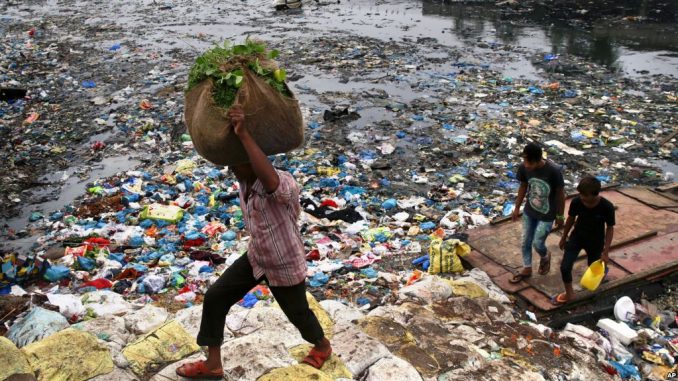
By Aradhna Wal
Surat produced a particularly high amount; 12.47 percent of its municipal solid waste (MSW) is plastic, while only 3.1 percent of Chandigarh’s MSW is plastic.
New Delhi: India generates 25,940 tonnes of plastic waste a day (t/day), said the union environment ministry, on Friday.
Answering a question raised on plastic waste in the Lok Sabha, Minister of State Dr Mahesh Sharma quoted a study by the Central Pollution Control Board (CPCB) that surveyed 60 major cities. These cities together produced 4059 T/day.
Surat produced a particularly high amount; 12.47 percent of its municipal solid waste (MSW) is plastic, while only 3.1 percent of Chandigarh’s MSW is plastic.
“The leachate can cause considerable pollution problems by contaminating the surrounding soil, ground or surface water,” says the ministry’s answer.
The ministry added that the Solid Waste Management Rules, 2016, puts the onus on the water generators to minimise the amount of plastic, to not litter and to segregate their waste at source when handing over to local authorities. The rules put the responsibility on local bodies, gram panchayats, waste generators, retailers and street vendors to manage the plastic waste, and on producers, importers and brand owners to manage the waste collection.
Efforts are on to reuse and recycle plastic waste, so as to keep it from leaching chemicals in landfills. A popular solution seems to be using it to construct roads, as Maharashtra recently announced and other cities have implemented.
Recently, the Centre for Science and Environment launched a forum of 20 municipalities and cities that have committed to achieve 100 percent source segregation by October 2, 2019. Alappuzha emerged as a model city on this forum, while Surat was not part of it.

Leave a Reply